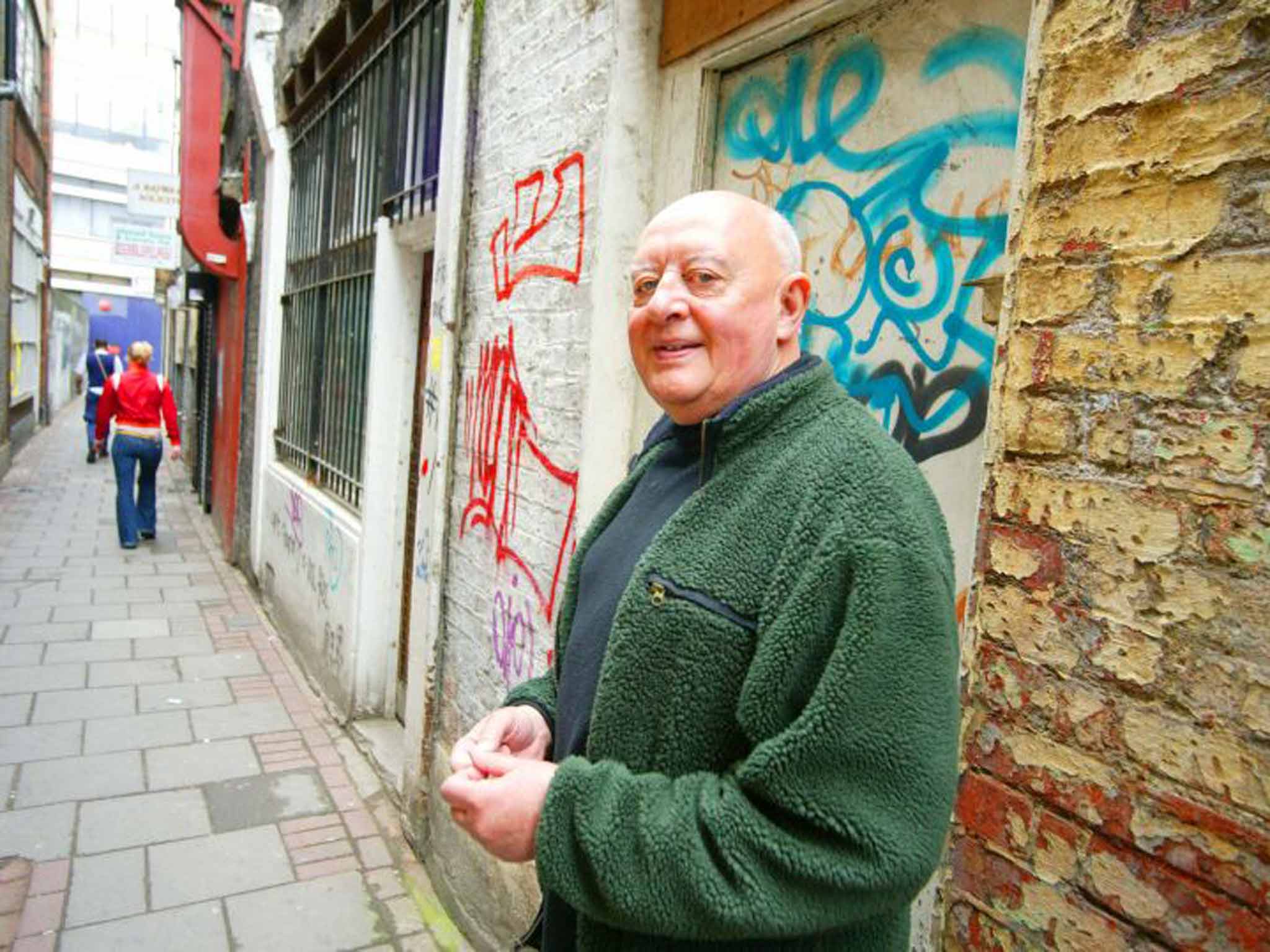Reverend Kenneth Leech: Priest who worked among the homeless and with drug addicts at Centrepoint
He was involved and hands-on in the real stuff of people's lives

In a church obsessed with structure, strategy and management, Kenneth Leech found himself increasingly a stranger. However, such is the lot of the prophet and, as one who always lived on the edge, he was never one to be categorised or constrained by the limitations or fashions of the institution.
Quietly spoken, provocative and with a burning, inclusive passion for those on the margins of society, Leech was born in 1939 to a working class family in Dukinfield in Cheshire with the clatter of the cotton mills not far away. He excelled at Hyde Grammar School where, bookish and even then with an austere and inscrutable presence, he was in the Classics VIth before going on to King's College in London to read history.
He arrived in London with a spirituality and vocation nurtured at the Anglo-Catholic shrine of St Thomas's Church in Hyde and with firm socialist views and no time for gin and lace. His early promise was spotted by Sydney (Hall) Evans, the patrician Dean of King's and an encourager of dissenters and people out of the ordinary. It was because of Evans' help that Leech was later to go back to St Augustine's Canterbury, the theological college attached to King's, where he was to be seminal in the formation of so many young clergy.
He was deeply holy and traditional in his faith, even kneeling towards the end of his life to say his prayers, when he was so disabled and viewing prayer as a subversive activity. The words of Bishop Frank Weston at the 1923 Anglo Catholic Congress continued to give him his direction: “You cannot worship Jesus in the tabernacle if you do not pity Jesus in the slum… Look for Jesus. And when you see him, gird yourselves with his towel and try to wash his feet”.
Whether it was as a student living in London with the Franciscans on Cable Street, as a curate in Hoxton or Soho, as a rector in Bethnal Green or working with the British Council of Churches and later at Church House Westminster, Leech's life of the contemplative kneeling before the Blessed Sacrament was intertwined with that of social action.
There were those who thought he would follow in the footsteps of his great Anglo Catholic heroes such as Father Joe Williamson of Stepney or Gresham Kirkby of St Paul's Bow Common, staying rooted in the parish, and they were disappointed when he did not devote his life to the parochial ministry. But he needed to be free.
He was involved and hands-on in the real stuff of people's lives, at the forefront of what would now be called the new evangelisation, and it was his work at Centrepoint (in London) alongside the young homeless and drug addicts, and later as Community Theologian at St Botolph's Aldgate, that gave him the space to use his gifts to the full.
Despite his decades living and working in London, he never lost his Lancashire accent, never forgot anybody and was terribly unselfish with his time and wisdom. Never a prima donna, he was open and generous in his acceptance of everybody. However, he was not always an easy colleague and was sometimes more ready to speak than to listen, perhaps betraying an inner loneliness.
He saw himself in the tradition of Stewart Headlam, the 19th century curate at St Matthew's Bethnal Green, where Leech was later to be Rector for four years, and Conrad Noel, the Red Vicar of Thaxted, and Leech's knowledge of Christian socialism was encyclopaedic and ably demonstrated by his contribution, alongside such people as Tony Benn, to a collection of essays published in 1980, Agenda for Prophets. He read the signs of the times well and his founding of the Jubilee Group, alongside such luminaries as Rowan Williams, was a serious attempt to help provide a radical political theology for the future.
With his razor-sharp mind, Leech's writing on spirituality was prodigious, Soul Friend and Spirituality and Pastoral Care being the most outstanding examples. Moulded by the breadth and catholicity of his reading, his personal friendships and his deeply held incarnational theology, his work continues to be incredibly helpful to people on their spiritual journey. Reflecting on this in the context of the work of a priest, he wrote: “Spirituality is not simply a preparation for good pastoral care and good priesthood, a technique for doing some job better. It is the inner reality of priesthood and pastorate, it is the integrated and lived theology of holiness and liberation, the heart of sacramental action, the flesh and blood of the pastoral life”.
Able to do theology at ground level, Leech was in great demand as a Spiritual Director and Confessor. Kind and honest, he told you how it was and helped you to move on. For one whose name was a byword in the field of Christian socialism and among the most inspiring spiritual writers of the late 20th century it is noticeable but not surprising that the only public recognition of Ken's ministry was the award of a Lambeth DD in 1998 by Rowan Williams.
He retired to his roots in Mossley, and is survived by his wife Julie and a son, Carl, from a previous marriage.
Kenneth Leech, priest and theologian: born Dukinfield, Cheshire 15 June 1939; married firstly (marriage dissolved), 1970 Rheta Wall (divorced 1993; one son), 2014 Julie Bond; died 12 September 2015.
Join our commenting forum
Join thought-provoking conversations, follow other Independent readers and see their replies
Comments
Bookmark popover
Removed from bookmarks